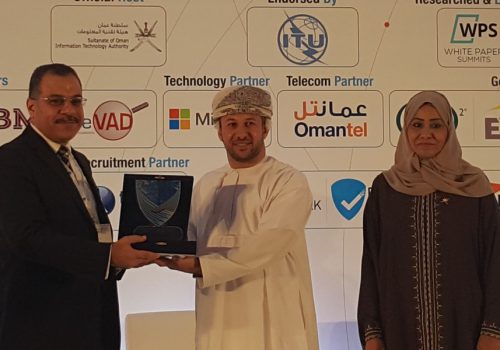Regardless of size, location or industry, businesses today face growing demands for profitability, operational efficiency, quality, innovation, and technology that enhance the sustainable development. In order to turn these pressures or challenges into a competitive advantage, companies need to develop an efficient and sound management tailored to the business processes and implement them systematically to maintain and constantly improve the overall performance.
Researchers from Harvard University have indicated that businesses which adopt management best practices gain substantial benefits:
- 75% of the businesses have improved their customer service
- 77% of the businesses have boosted their performance
- 74% of the businesses have acquired new customers and retained existing clients
- 44% of the businesses have achieved cost savings.
The latest research on this topic published in 2017 by Harvard Business Review has underscored these findings by identifying faster sales growth, increased employment and fewer workplace injuries in companies that are applying sound management practices.
Moreover, the organization`s level of complexity may depend on each company’s specific context. For some enterprises, especially SMEs, it may simply mean having strong leadership from the business owner, providing a clear definition of what is expected from each individual employee and how they contribute to the organization’s overall corporate performance.
The complex businesses operating, for example, in highly regulated sectors, may need extensive controls over the processes in order to meet the requirements of the market, the social and legal obligations and their organizational objectives.
So, why organizations are so keen to obtain management system certification?
In order to answer this question, let`s look at the ISO Model for Management System Standards.

The ISO Model: agreed by experts
The ISO Management System Standards (MSS) help organizations to improve their performance by specifying repeatable activities that organizations consciously implement to achieve their goals and objectives, and to create an organizational culture that reflexively engages in a continuous cycle of self-evaluation, correction, and improvement of operations and processes through increasing employee awareness and management leadership and commitment.
As globalization becomes the trend, the market is becoming more competitive. Moroccan SMEs are striving to position themselves in the local market.In 2016, according to a Market Research led by Mr. Abdellah El Fergui, the President of the Moroccan Confederation of Small and Medium Enterprises, there were more than 3000 VSE/SME companies who have faced bankruptcy and were doomed to fail mainly due to the lack of sound management practices.
Only a few Moroccan SMEs can be considered a success story benchmarking from the global standards. By being active listeners to market trends, these organizations have managed to effectively respond to their customer needs.
So, why the majority of Moroccan SMEs are struggling to adapt and adopt management best practices?
Every enterprise has some basic challenges that threaten its overall business success:
- Adhere and comply with customer requirements and government regulations and standards;
- Protect the organization through embedding quality and instituting best practices;
- Grow the organization, extending the customer reach and satisfaction, thereby increasing revenue and profitability.
Only a few Moroccan business managers acknowledge the importance of customer service. As social media is dominating individuals’ lives, Moroccan customers are being very well informed, and they are using this information as a critical criterion to make their purchase decisions.
Many so-called ‘entrepreneurs’ start a business with neither a solid business model nor a venture design thinking, lacking clear-cut vision and sound strategy. Most of the time, they only copy and paste existing business ideas, lacking passion and only dreaming about getting rich.
These entrepreneurs are driven by greed and only a few of them truly believe that their business serves a purpose, exists to meet a real business need and satisfy existing or potential customers. The primary goal of any business should be utmost customer satisfaction. Making money will be the result of visionary leadership and sound management practices within a company.
An effective lean marketing strategy will place good customer service as a top priority which will increase the number of loyal customers and their willingness to repeat the buying experience.A crucial success factor is also brand building as it enhances the reputation of the company in customers’minds.
Many Moroccan SMEs are lacking sufficient knowledge of what competitors are offering. Before committing to offer even better products and services to their own customers, SMEs should develop their own Business Intelligence system and be aware of what their competitors do. For this reason, SMEs must always outlearn and be one step ahead of the competition, or they’ll find themselves out of the game. Morocco is no exception to the rule. Customers today have more choices than ever and can quickly and easily move on to other vendors.
According to the Entrepreneur Middle East magazine, the Moroccan SMEs are in short of vision translated into a long-term strategy. Although nobody can predict tomorrow’s trends, keeping your ear to the ground will give you insights as to what the market will expect. The strategists often say: ‘You cannot drive a boat by only looking at the next wave, so you have to know where you’re heading, otherwise, you will simply end up where the winds take you, regardless of whether that is the intended destination.’

So here comes the importance of the implementation of a sound management system!
A sound management system is a way in which an organization manages the inter-related parts or elements of its business/organizational system in order to achieve its corporate objectives. These objectives can relate to a number of different areas, including visionary leadership combined with ethical and social corporate responsibility, clear-cut strategy, product development, quality customer service, operational efficiency, environmental performance, and health and safety in the workplace.
The benefits of an effective management system to an organization include:
- More efficient use of resources and improved financial performance
- Improved risk management and protection of people and environment
- Increased capability to deliver consistent and improved services and products, thereby increasing value to customers and all other stakeholders.
An effective implementation of the Management System Standards allows organizations to meet business objectives by infusing best practices and validating, through certification, that they are properly established in the company. TheManagement System Standards are the result of consensus among international experts with expertise in global management, leadership strategies, and efficient and effective processes and practices.
The top management of companies is increasingly investing on management system certifications, recognizing this as a critical success factor for their businesses. In today`s business world, a management system certification proves management`s commitment to helping the organization improve quality, safety, operational efficiency, minimize risk, and maximize the values of their assets.









